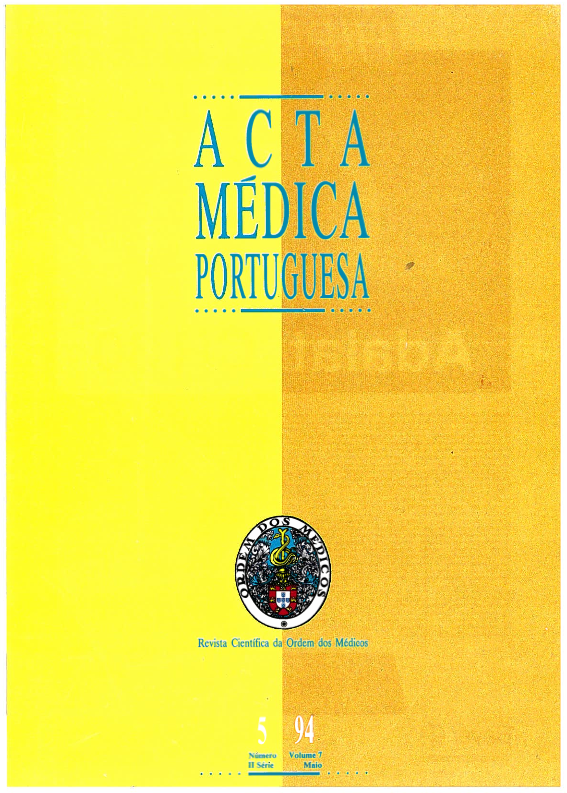Homocysteinemia as a risk factor in early cerebrovascular disease.
DOI:
https://doi.org/10.20344/amp.2899Abstract
To determine whether hyperhomocysteinemia represents a risk factor of early thrombotic cerebrovascular disease.In a group of patients under 55 years of age (n = 33, 19 males) which had suffered a stroke from 3 months to 1 year before the study, defined by clinical criteria and presence of cerebral infarction confirmed by tomography, without history or predisposition to embolic disease. The patients were matched with a group of normal controls of checkup program, in terms of age, and sex. Patients and controls with a history of alcoholism, clinical or laboratory signs of renal or hepatic insufficiency or with a history of recent ingestion of Group B vitamins were excluded since these conditions would influence homocysteinemia levels. We measured the plasmatic basal homocysteinemia of patients and controls (HC) and 6 hours later a methionine overload of 0.1 g/Kg body weight (LOAD HC).Patients; Controls; Signific.; Age 46.0 +/- 7.7; 45.9 +/- 7.8; NS; Basal HC. 10.1 +/- 3.4; 8.5 +/- 1.7; p < 0.05; Load HC 28.0 +/- 7.6; 22.7 +/- 5.5; p < 0.01.In this study hyperhomocysteinemia appears as a risk factor for thrombotic cerebrovascular disease before the age of 55;-The measurement of homocysteinemia after the methionine loading test was more discriminative than the basal measurement;-A larger number of patients and controls will be necessary to establish the relative importance of homocysteinemia among other vascular risk factors in cerebrovascular disease.Downloads
Downloads
How to Cite
Issue
Section
License
All the articles published in the AMP are open access and comply with the requirements of funding agencies or academic institutions. The AMP is governed by the terms of the Creative Commons ‘Attribution – Non-Commercial Use - (CC-BY-NC)’ license, regarding the use by third parties.
It is the author’s responsibility to obtain approval for the reproduction of figures, tables, etc. from other publications.
Upon acceptance of an article for publication, the authors will be asked to complete the ICMJE “Copyright Liability and Copyright Sharing Statement “(http://www.actamedicaportuguesa.com/info/AMP-NormasPublicacao.pdf) and the “Declaration of Potential Conflicts of Interest” (http:// www.icmje.org/conflicts-of-interest). An e-mail will be sent to the corresponding author to acknowledge receipt of the manuscript.
After publication, the authors are authorised to make their articles available in repositories of their institutions of origin, as long as they always mention where they were published and according to the Creative Commons license.









